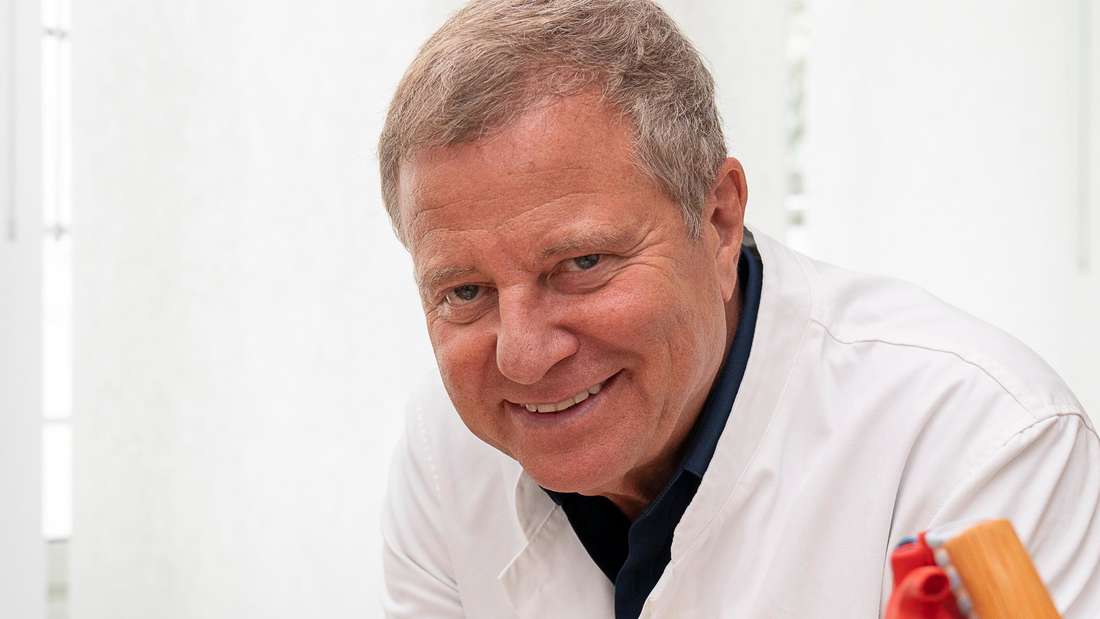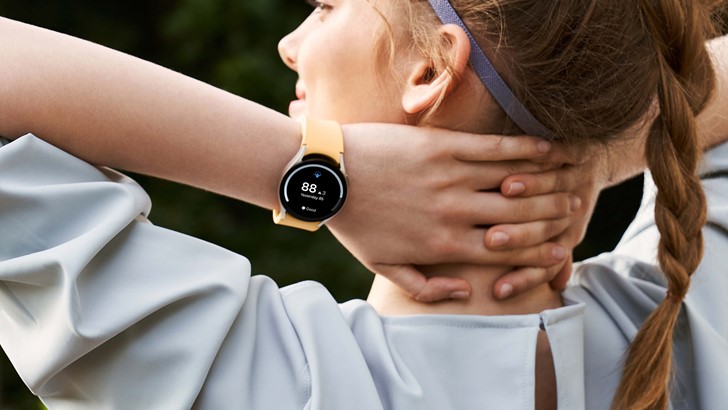Press
Prof. Rüdiger Lange will be 70 in July and is in great shape. The well-known heart surgeon reveals his secret to success and gives tips on how you can stay healthy as you age.
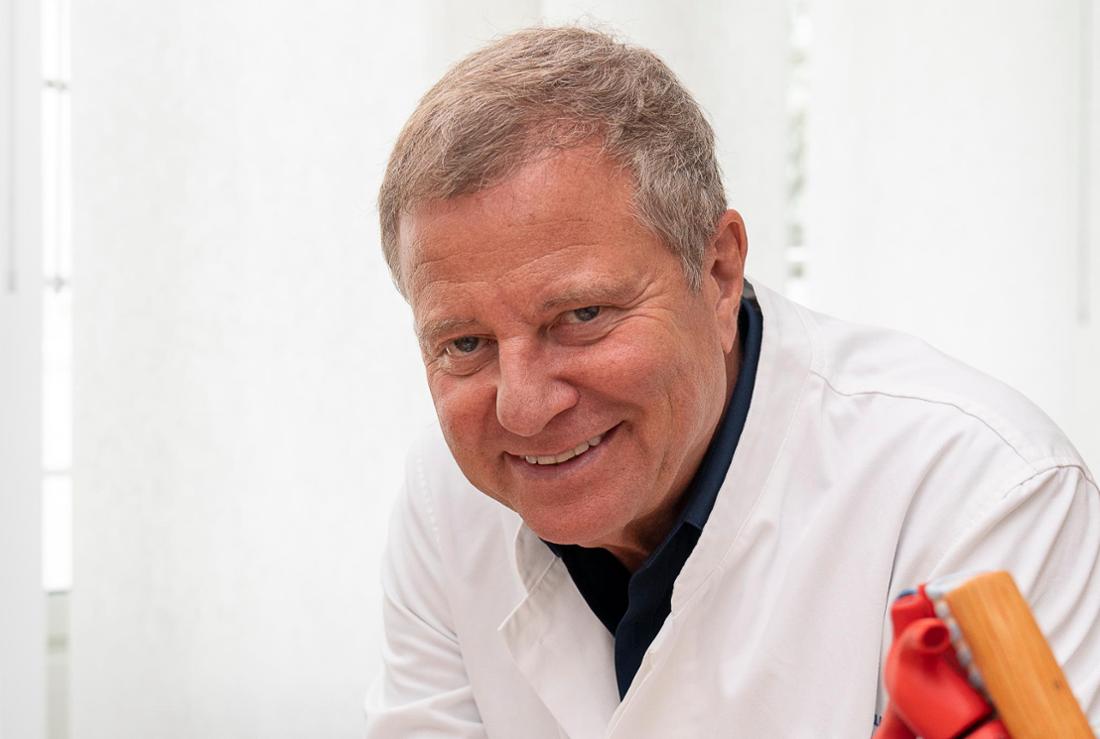
His reputation as a heart surgeon is legendary, but Professor Rüdiger Lange also cuts an extraordinary figure outside of the operating room. The 69-year-old, who celebrates his milestone birthday in July, is as fit as few of his peers, and his performance figures make many a youngster green with envy. This became clear once again in a performance test that the director of cardiac surgery at the German Heart Center completed with his colleague Professor Martin Halle. Halle heads preventive sports medicine and sports cardiology at the Rechts der Isar Clinic. People of all ages can be checked with him – from amateur athletes to Olympians.
15,000 operations: Cardiac surgeon Lange shaped an era at the German Heart Center
Professor Rüdiger Lange is one of the world’s leading heart surgeons. The 69-year-old is retiring in the summer after almost 24 years of service as clinic director at the heart center. The 69-year-old exceptional surgeon shaped an era at the Munich Heart Center, carrying out around 15,000 procedures, some of them the most difficult. In Munich alone, the Bonn native performed heart surgery on over 10,000 adults and more than 2,000 newborns. His patients and colleagues attest to his not only professional but also human qualities. He is considered a sensitive doctor who can listen despite stress. As boss, Lange supported numerous young doctors out of conviction and opened new career doors for colleagues. His former vice professor Markus Krane will soon return from the USA as the new head of cardiac surgery at the heart center.
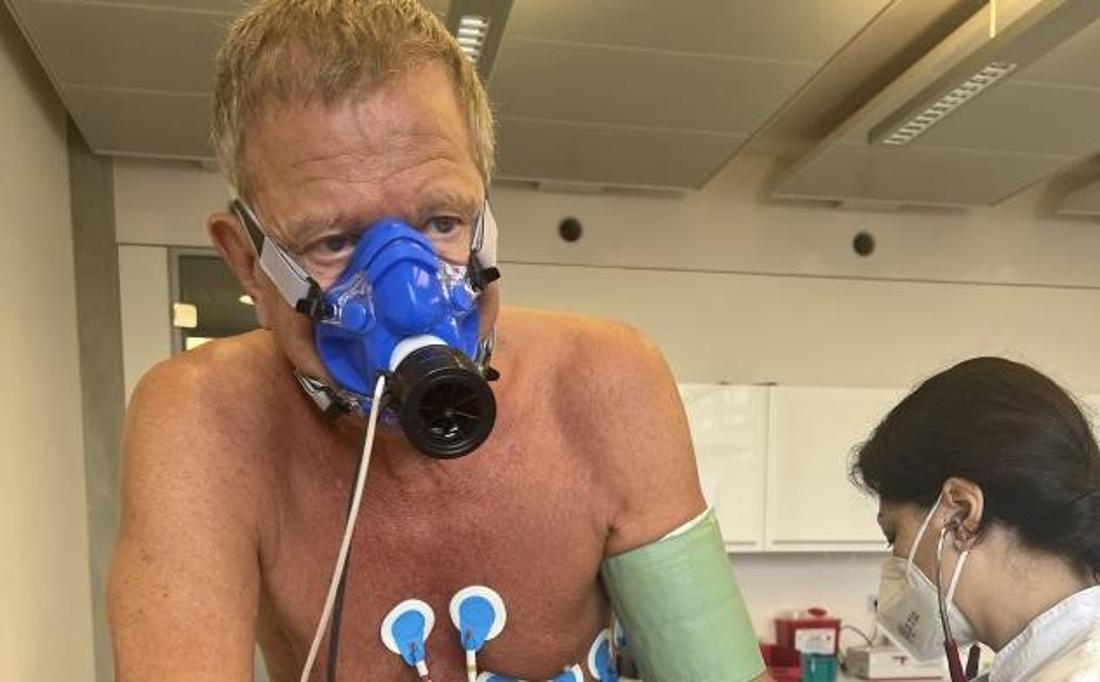
Heart surgeon, almost 70 years old, manages a resistance of 290 watts
At the age of almost 70, heart surgeon Lange mastered a resistance of 290 watts on the bicycle ergometer, and the vital signs during the test (including pulse, blood pressure, oxygen saturation, lactate) were extraordinary. “His results are impressive. Just three percent in his age group are even better,” reports sports cardiologist Halle. “Professor Lange is a role model. It provides proof of how much fitness and quality of life can be achieved with regular training and a healthy lifestyle, even in old age.”
However, this is no coincidence. Lange has regularly participated in endurance sports his entire life; he is, among other things, an enthusiastic racing cyclist. This hobby is not only fun for him, it helps him enormously professionally. “Sport is very important in order to achieve optimal concentration. For me, former Formula 1 world champion Ayrton Senna was a prime example. He always explained that he had to be in top shape in order to be able to achieve top mental performance,” reports Lange.
Professor Lange trains on the racing bike and does strength training several times a week
That’s why the heart surgeon trains several times a week, usually on Saturdays he does a long lap lasting around two and a half to three hours. In winter and in bad weather, he uses his stationary bike in the basement of his house. “I set up a fitness room there. In addition to cycling, I also train with a rowing machine and with bands. Strength training is particularly important as we get older to counteract the natural loss of muscle mass.”
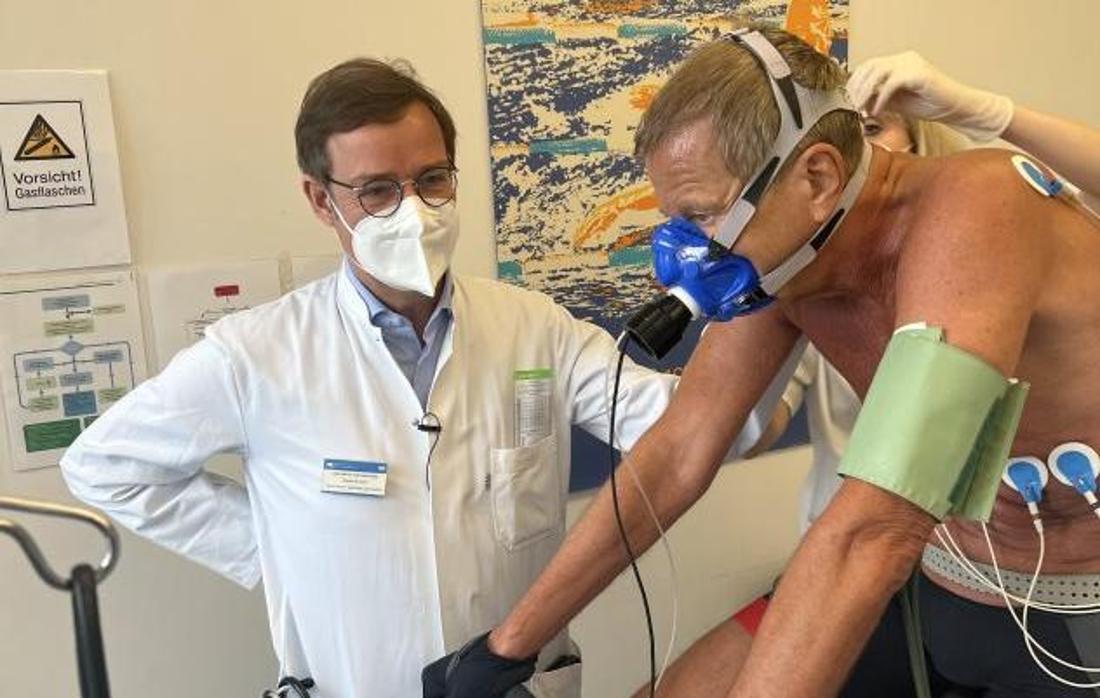
It’s not just about getting old. What is crucial is to age with the highest possible quality of life.
The heart surgeon is not interested in reaching a biblical age. First and foremost, he wants to “grow old with the highest possible quality of life,” as he himself says. That’s why Lange also pays attention to his diet. “I eat less meat than before, and instead I eat fish more often. I try to enjoy as many vegetables and freshly cooked dishes as possible, but I also treat myself to something sweet every now and then like a piece of cake or a glass of wine. Overall, however, I don’t drink much alcohol.”
Endurance training at home too
Of course, endurance cannot only be improved on a (racing) bike in the great outdoors. Every step or every revolution of the pedals counts – even on the exercise bike. Already with a medium-priced model such as the Dripex exercise bike (promotional link) endurance can be improved. What counts: stick with it and do little more often than do too much once – and quickly lose interest.
Healthy in old age: Don’t go overboard when training
Lange recommends his patients – especially those of advanced age – to discover the joy of sport, but not to overshoot the goal: “Please don’t make the mistake of sitting on a bike without training, for example at my age, and pedaling like crazy – until your head is red. It is much more sensible and healthier to start training slowly and only increase the load moderately. And: It’s best to get checked out by a doctor beforehand.”

Prevention medicine specialist Prof. Martin Halle: Get checked before training!
The sports cardiologist and preventive medicine specialist Halle also advises: “This is very important, especially if you have already had heart problems. “During stress, blood pressure, among other things, temporarily increases. In some cases it may make sense for the patient to take medication for a while to cushion the stress.” When it comes to training, regularity is more important than a huge workload. “The most effective thing is: 15 minutes of moderate exercise five times a week – so that you start to sweat slightly,” explains Halle. “For example, by brisk walking or cycling. Swimming is also beneficial, but it is not so suitable for people with high blood pressure because the water pressure puts even more strain on the blood vessels.”
Of course, depending on your fitness level, the training sessions can be a little longer, but please do not be overly ambitious, says heart surgeon Lange. “Older people in particular should accept and sport the fact that they are no longer the youngest. Don’t focus on others, but look at yourself and enjoy the movement. “It makes no sense at all to try, at the age of 70, to race after every 30-year-old on the Isar on a mountain bike,” says Lange with a smile.
“Sport knows no age” – exercise program also in senior citizens’ facilities
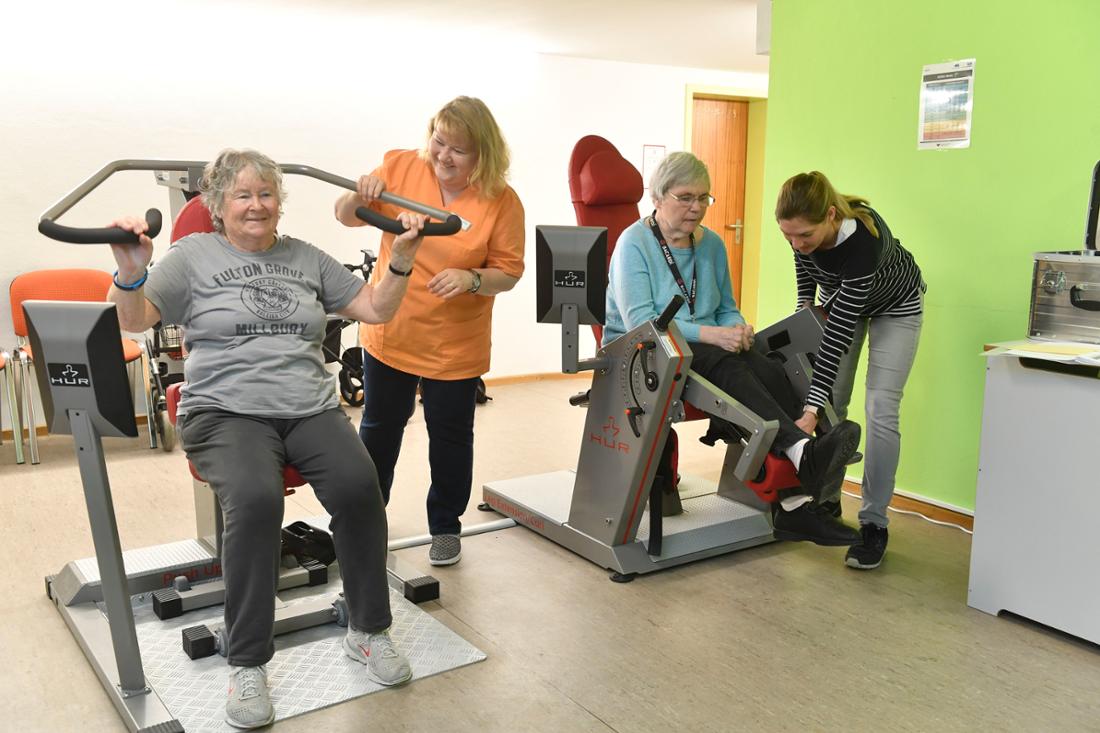
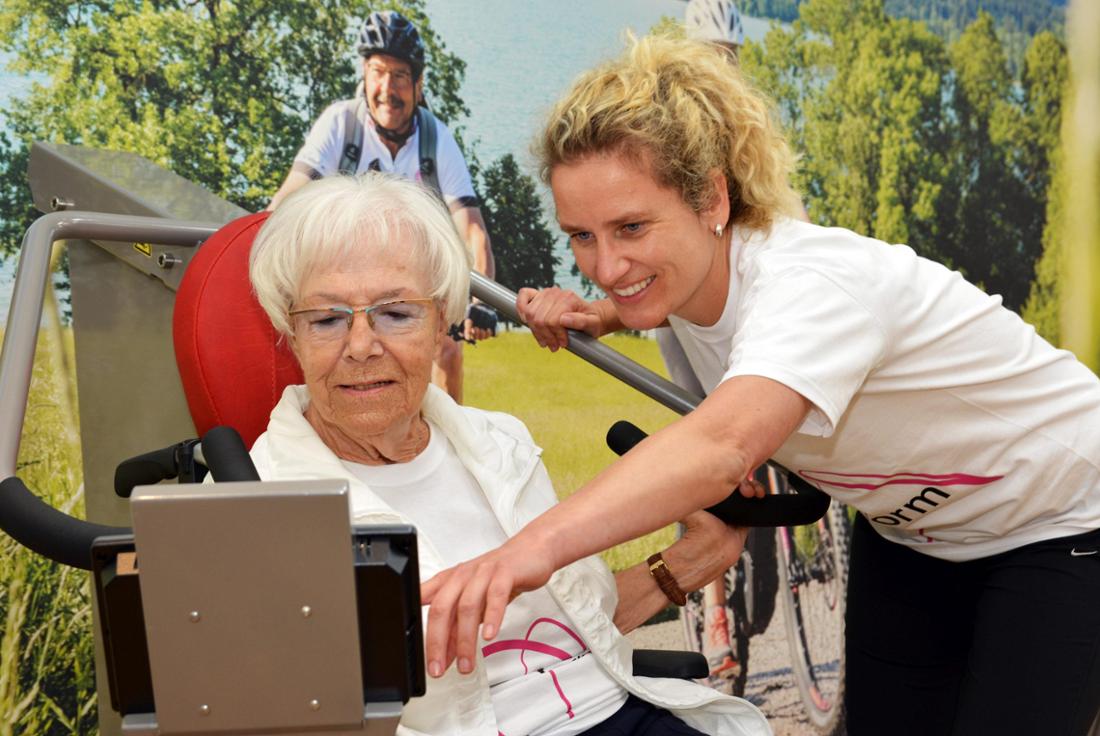
Especially since the joy of movement is also a key to training success. “It ensures that you train regularly. And this is still possible even into very old age,” emphasizes sports cardiologist Halle. The participants in a large training program in senior citizens’ facilities, which Halle and his team of sports scientists from the Technical University of Munich are supporting with great commitment, provide proof of this. Under the motto “Best form – sport knows no age”, over 400 seniors train twice a week on special equipment for elderly people in more than 20 facilities in Munich and Upper Bavaria. “It is impressive to see how much older people benefit from exercise,” comments heart surgeon Lange. The TU sports scientists are investigating how effective bestform training is as part of one of the world’s largest scientific studies in retirement homes. His colleague Halle wants to present the results of the study together with the bestform project managers Nina Schaller and private lecturer Dr. Introducing Monika Siegrist in the fall.
Social expert Dr. Stefan Arend: Right to high-quality exercise programs
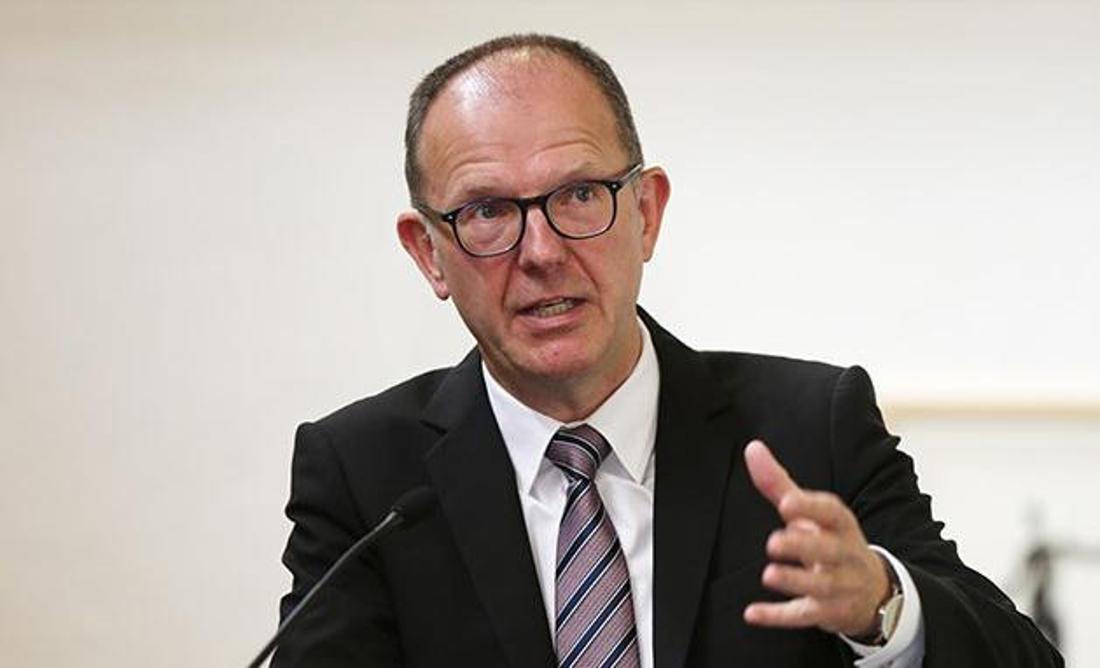
The innovative health project is supported by, among others, numerous home providers, the Beisheim Foundation and the renowned social manager and care expert Dr. Stefan Arend. He is fighting for a reform of our care system: “Technically sound exercise programs must be anchored as a basic requirement in the contracts with residents.” Arend recently gave a passionate plea for the right of seniors to high-quality exercise programs at a scientific symposium in Munich.
Heart professors Halle and Lange promote exercise as a lifelong health benefit
Halle and Lange are also campaigning for greater consideration of exercise as a lifelong health benefit. “Regular training helps to maintain independence,” says Halle. “Those who exercise regularly improve their performance, are less likely to suffer from chronic diseases such as cardiovascular diseases, diabetes or dementia, are physically less restricted, remain mentally fit, have more social contacts and have a longer life expectancy.”
This article only contains general information on the respective health topic and is therefore not intended for self-diagnosis, treatment or medication. It in no way replaces a visit to the doctor. Unfortunately, our editorial team cannot answer individual questions about medical conditions.

